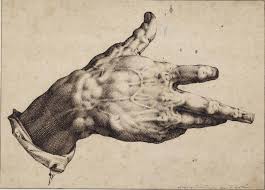This Sunday, the lectionary calls us to ponder Mark 2:23-3:6. The English Standard Version breaks the selection into two parts. To the first, it assigns the title “Jesus is Lord of the Sabbath,” and to the second, the title “A Man with a Withered Hand.”
In the first part, we read that Jesus and his inner circle of 12 disciples walked through a field planted with grain ripe for harvest. The 12 were plucking “heads of grain.” We’re not told they were eating the grain.
They were not “gleaning and eating,” an activity which the Mosaic Law required farmers to allow, if done by those who were desperately hungry. The law[1] allowed them to take the grain, provided they used their hands. Sickles or tools were forbidden.
It was a Sabbath day, the day of rest for the Jews. They were all Jews. They were watched by Pharisees, Jews who insisted on strict observance of the law as the community’s expression of honour for God.
The Pharisees took issue with what Jesus’ disciples were doing. They approached Jesus. They asked him why his disciples were doing that which is unlawful, that which is forbidden, on the Sabbath.
Jesus responded by pointing them to a passage in their scriptures which recorded an occasion when David, the King whose return they said they longed for, did something unlawful. David ate “the bread of the Presence,” which it was unlawful for any but priests to eat.
When Jesus sparred with the Pharisees, he referred to himself as “Son of Man.” This term evokes the Messiah whom they claimed to be expecting in the person of David. And Jesus added:
“The Sabbath was made for man, not man for the Sabbath. So the Son of Man is lord even of the Sabbath.” (Mark 2:27b-28)
Then, Jesus, the disciples, and the Pharisees, went to the Synagogue, the place of meeting for Jews, to worship God. There, Jesus did something very deliberate. He staged political theatre.
What does that mean? Here, it means he staged a drama designed to expose beliefs and practices which work against the true purpose of life in community and the purpose of the Sabbath, the day of rest.
Jesus staged the theatre by speaking authoritatively in the Synagogue. He commanded a man with a withered hand to come forward. Jesus spoke solo, loudly. He used the man as actor, prop, backdrop. He used those present as examples of “bad guides” and “the misguided.”
Jesus asked all present a question about what may, lawfully, be done on the Sabbath. He flung a pointed question at them. He asked:
“… Is it lawful on the Sabbath to do good or to do harm, to save life or to kill?” (Mark 3:4)
They were silent. He repeated the question. He looked around. He made eye-contact with everyone. Everyone felt the prick of his piercing eyes. The only thing they heard was silence. The only thing they saw was his face turn dark, his eyes widen, his mouth clamp shut. Mark sums it up:
“… he looked around at them with anger, grieved at their hardness of heart.” (Mark 3:5)
After the long dramatic pause and display of emotion, Jesus did it. He healed a man who didn’t ask to be healed. Jesus didn’t shout or spit or bounce. He just spoke to the man. He said the words:
“… Stretch out your hand.” (Mark 3:5)
And the man stretched out his hand. His hand was restored.
Stop for a moment and think about “work.” Did Jesus do any work? Did the man with the withered hand do any work? Is healing through speaking “work”?
Why were they silent? Let’s spell it out.
They were silent because they knew what answer the chiefs among them, the social and religious elite, would approve. They were silent because they didn’t want to earn the disapproval and wrath of the chiefs.
What was the response of the chiefs? What was the response of the Pharisees and now, added to them, the Herodians – the party who campaigned for Herod, the usurper king who sat on the throne of David?
Their response was like that of all politicians who are publicly exposed. Their response was to gang together to oppose the one who disturbed their peace. In this case, the one who healed, who saved. Their response was to gang up against the one who was the Messiah.
Why? Because if people gave Jesus the place of honour, the chiefs would lose their place of honour. Because the chiefs calculated well. Because the chiefs knew that where Jesus is, the status quo changes.
How effective was Jesus’ political theatre?
Peace be with you.
[1] Deuteronomy 23:25
To learn more about Rama, click here.



Pingback: Jesus, the Lord of the flies, and madness – Bangsar Lutheran Church